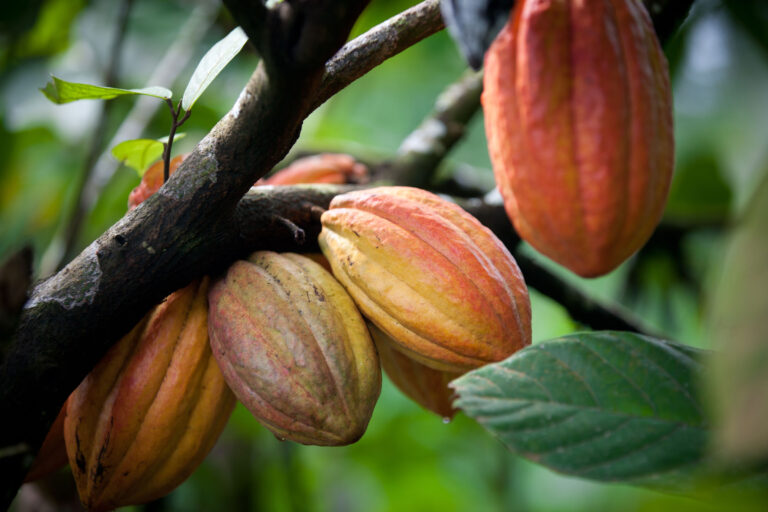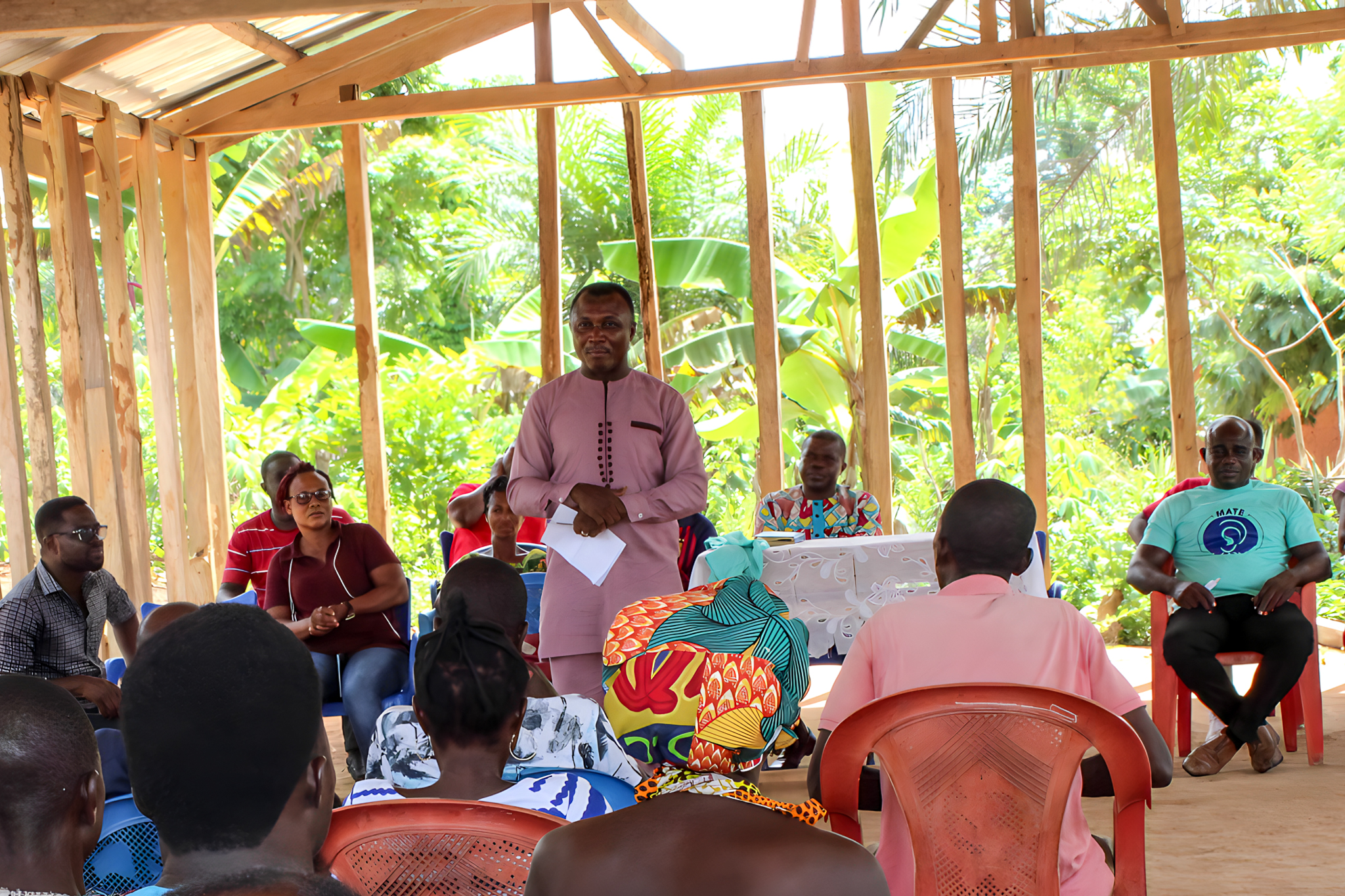
United against child labor: How local child protection committees and cocoa co-ops are collaborating to combat child labor in Ghana’s Ashanti Region
By Damasus Yaghr, MATE MASIE project officer, Winrock International
Adansi South District is one of the 43 Metropolitan, Municipal and District Assemblies in the Ashanti Region of Ghana.
It’s a hilly district with a semi-equatorial climate. The capital, New Edubiase, lies upon the Kumasi-Cape Coast Highway, and agriculture dominates the local economy. Cocoa is the main crop, with rice, oil palm, cassava, plantain, coconut and vegetables also cultivated by smallholder farmers using mostly traditional methods. Adansi South also is rich in unmined gold and diamond deposits, and boasts of tourist attractions including the White-Necked Picathartes Birds Sanctuary and the snake-like palm tree.
Despite its wealth of resources, people in the district still face economic hardship, in part because of low wages earned by cocoa farmers, resulting in social problems such as child labor.
To help combat the problem, the U.S. Department of Labor is funding the four-year MATE MASIE project, which began in 2020. The project aims to strengthen capacity, connections and accountability across child labor enforcement and monitoring within cocoa cooperatives in Ghana. MATE MASIE is short for Making Advances to Eliminate Child Labor in More Areas with Sustainable Integrated Efforts, but the words also have meaning in Asante: “What I hear, I keep.”
Part of the project’s approach is working with Adansi District’s Child Protection Committee (DCPC), a nine-member committee chaired by the district coordinating director; the committee includes directors from a wide range of government entities. The main purpose of the DCPC is to coordinate and oversee child protection issues in the district. This makes the committee a key stakeholder and partner of the MATE MASIE project.
Nkansah Haruna Hussein is the district coordinating director (DCD) and DCPC chair. Although Adansi South is his first posting as DCD, he is not new to the district, having worked as the deputy DCD from 2017 to 2021.
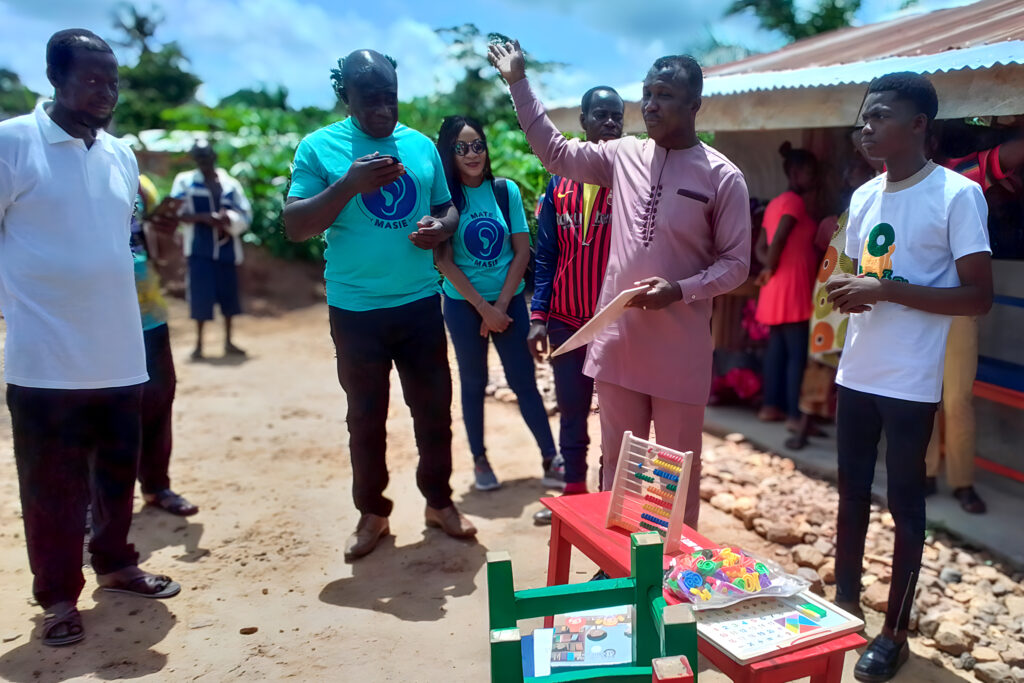
“When I was here as the deputy, you are given the mandate as the liaison officer by the district chief executive and the coordinating director to go round every corner of the district to meet and help the people in the district,” Hussein said. “With this, I was able to travel across the district to interact with and know the challenges of the people. When I came back to Adansi South and realized Winrock International is here to support the people, I became zealous to offer my best to support the project activities.”
Hussein took over as DCD and chair of the DCPC shortly after the committee was formed. He was first briefed on the MATE MASIE project by the social welfare director and a MATE MASIE project officer.
Hussein said he was glad to learn about the project and its goals of building local partnerships to combat child labor, and that his support for it has been unwavering.
‘‘I am a professionally trained teacher who rose through the ranks to become the headmaster of a private senior high school in Accra. Every teacher wants to see every child in school and I have the interest of children at heart. Sometimes when I see the agenda of your activities, I have the desire to support and contribute to make them successful. As a result, I feel pained on the few occasions I did not have the time to participate in your meetings fully.”
Hussein sees MATE MASIE’s collaboration with communities and government as an opportunity for the district to reduce child labor.
To that end, Hussein actively supports the project by providing logistics and assigning staff to participate in project activities at district and regional levels. He offers the district assembly hall as a venue for project events with community members and other partners. He has also provided access to the district’s own minibus for project activities, and makes a point to attend MATE MASIE events in person, rather than delegating to another representative.
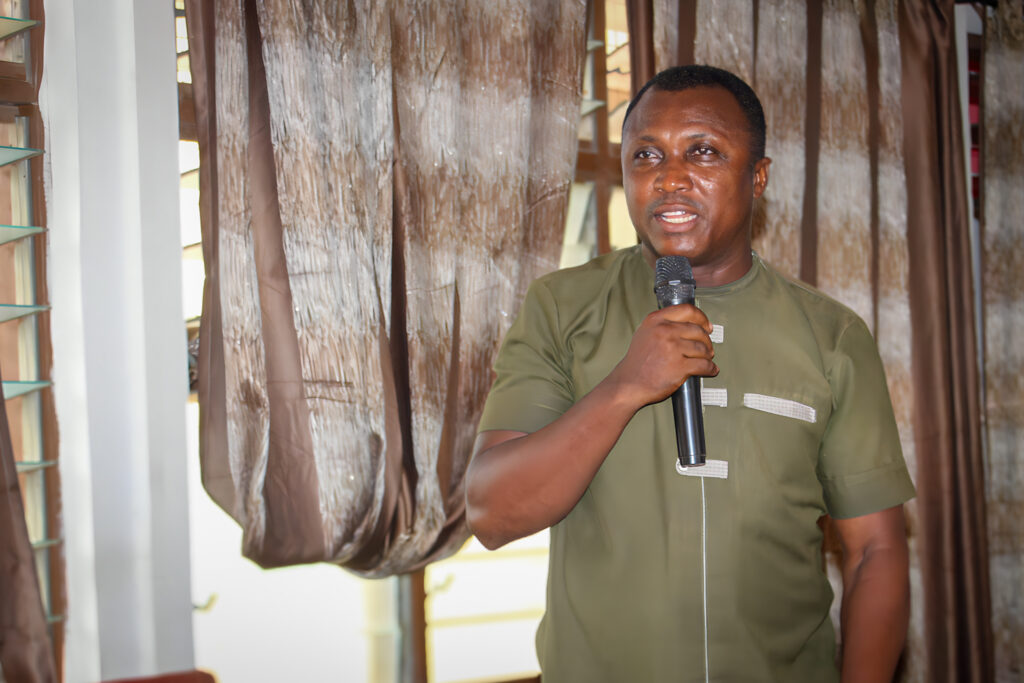
At the handing over ceremony of school items to a local school in Essonkrom supported by the Kokoo Pa cooperative, a project partner, Hussein praised the community’s effort at educating their children. He urged the community to secure land, lay the foundation for a classroom building and apply for support under the community-initiated projects from the District Assembly. During his remarks at the district’s maiden 2023 World Day Against Child Labor commemoration at Asarekrom, he said: “Children are the future of every nation and therefore actions that will destroy their future must not be tolerated… and that children should not just be exempted from labor but must also be enrolled in school to ensure they become responsible citizens and individuals in the future.”
Following a project training, Community CPCs are now detecting, addressing, monitoring and referring child labor cases to the district-level CPC overseen by Hussein, directly from communities. The training equipped district and community-level child labor monitoring and enforcement representatives with tools and knowledge to identify and report child labor issues. The social welfare director and the domestic violence and victims’ support unit director are now able to respond quickly to address referral cases.
When asked why he has a strong interest in partnering with MATE MASIE, Hussein said: ‘‘The way the management of the MATE MASIE project relates with the District Assembly is different. Other donors come trying to dictate to the assembly because they are providing the funds, but your bosses visit us for collaborative discussions, and this is very good.”
MATE MASIE, in collaboration with the district and community committees and two cocoa cooperatives ─ Kuapa Kokoo Farmers Union and the Kokoo Pa Farmers Association ─ has worked to address child labor incidents across all five project communities in Adansi South. Over 100 children have either returned to the classroom or are now enrolled in the two kindergartens set up in Essonkrom and Ghetto, a hamlet in the Odumasi community.
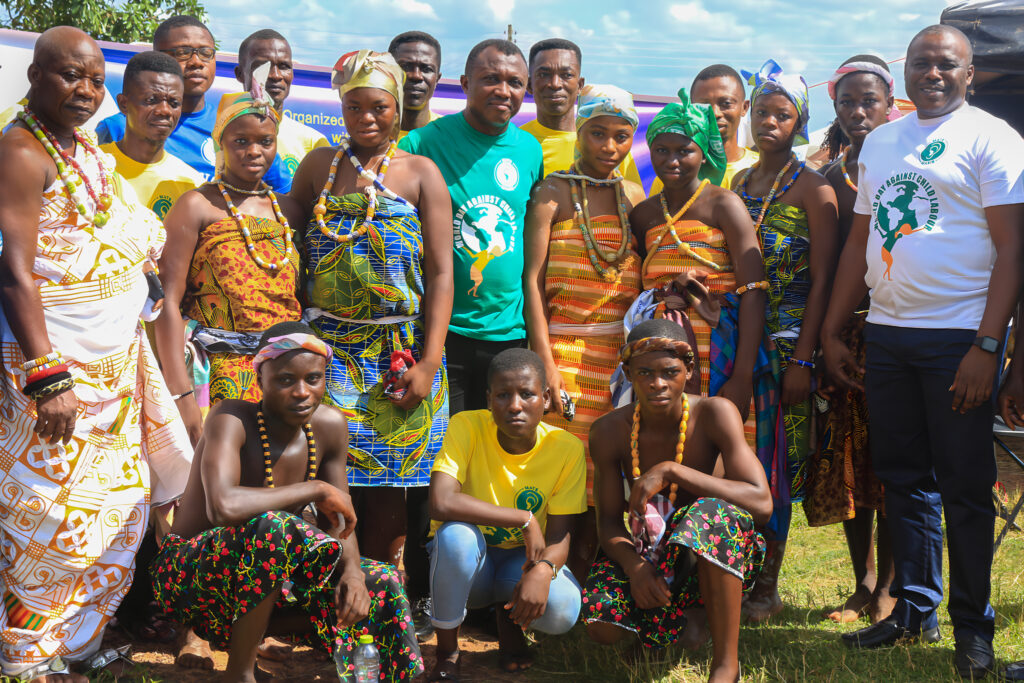
The strong collaboration among project stakeholders yields results in the project communities and at the district level. The District Health Directorate is collaborating with one of the medical doctors at the New Edubiase Government Hospital to support the project by conducting medical examinations and issuing medical reports for vulnerable children at no cost.
As we observe another World Day Against Child Labor, I urge you to pause, take a deep breath, and spread some positive energy to the stakeholders of Adansi South District, the other districts of the MATE MASIE project as well as the agencies and organizations working to ensure our chocolate remains sweet and produced responsibly without the sweat of children.
Funding is provided by the United States Department of Labor under cooperative agreement number IL-35537-20-75-K. One hundred percent of the total costs of the project are financed with USG federal funds for a total of $4,000,000 dollars. This material does not necessarily reflect the views or policies of the United States Department of Labor, nor does mention of trade names, commercial products, or organizations imply endorsement by the United States Government.
Related Projects
